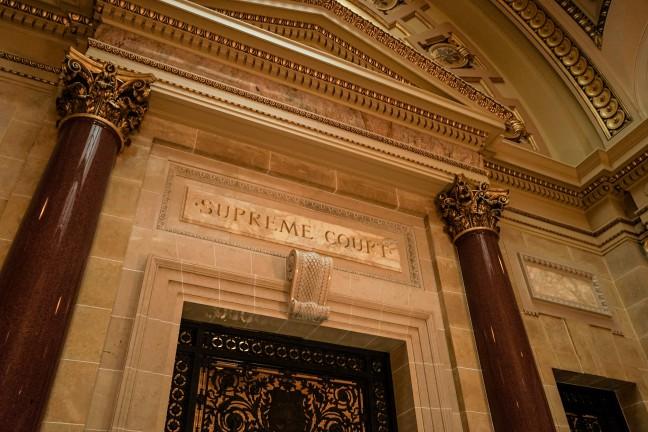Tuesday, Feb. 20, Wisconsin goes to the polls for the Supreme Court spring primary. We, as students, have an opportunity to select which Supreme Court candidate we want to see in the general elections, and eventually, in office. Once elected to this non-partisan office, this judge will serve a 10-year term and be one of seven justices on the court.
With the incumbent currently in office stepping down at the end of his term, three candidates are running to replace him: Michael Screnock, Rebecca Dallet and Tim Burns.
Typically, this type of race sees a low turnout. For example, only about 10 percent of registered Wisconsin voters came out and voted for the last state Supreme Court race. This, however, belittles the importance of this office. The state Supreme Court regularly makes decisions which affect all Wisconsinites.
For example, in the last two years, the court has ruled on guns on public transportation, judicial recusal from presiding over cases involving large donors or debts, Fifth Amendment implementation, environmental protections and police searches. In the past year, it has passed rulings affecting who can get unemployment, how the state’s open-records laws work and how home foreclosures can be done. The precedents set here not only affect how the legislature implements these issues across Wisconsin, but also how the state court discusses these issues in the future.
ASM, Vote Everywhere combat confusion over voter ID laws with new initiatives
Regardless of where your opinions fall on these issues, these decisions are important. Make sure your voice is heard, no matter which election it is. As students, we are often forgotten about, or ignored, by politicians. Opportunities like these — for students to decide the next 10 years on the state Supreme Court — cannot be wasted.
Whether you believe in Second Amendment rights or environmental regulation, student advocacy or women’s rights, the Supreme Court plays a vital role in our everyday lives. Although the Supreme Court feels far away like they’re justices we’ll never see or hear from, their decisions impact our lives and everything we do. So, we must make sure we’re heard, not just as students, but as passionate citizens and Wisconsinites — the next 10 years in the Supreme Court depends on us.
For further information on the three candidates running, check the interviews done by the nonpartisan League of Women Voters. To find your polling place, check registration status and see if there are any other offices on the ballot, go to myvote.wi.gov.
Even if you are not registered to vote, Wisconsin has same-day registration at the polls on election day, with proof of residency. Voters also need to bring photo ID, such as a Wisconsin driver’s license or ID — address does not need to be up to date — passport or UW student voter ID, to the polls.
No matter who you vote for, please make sure you vote!
Beth Alleman ([email protected]) is a graduate student studying nursing and the Vote Coordinator for ASM. Yogev Ben-Yitschak ([email protected]) is a sophomore studying Marketing and the Outreach Director for ASM.














